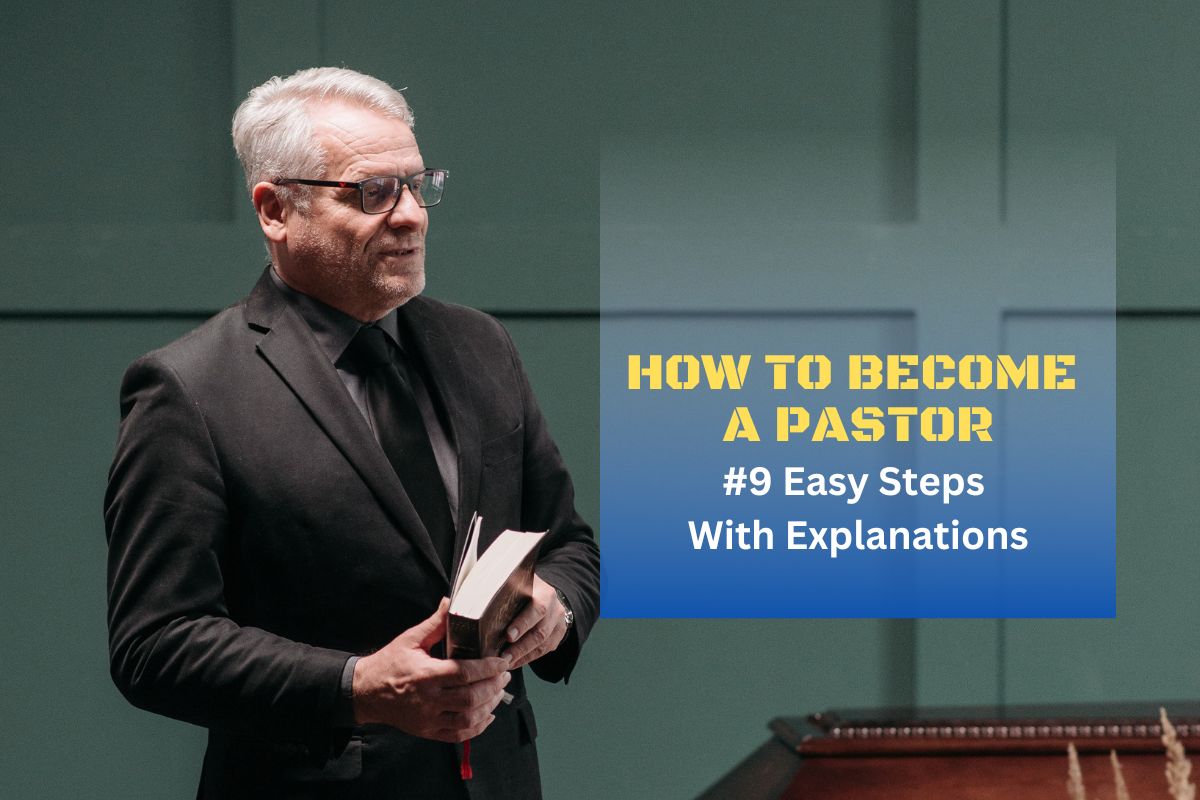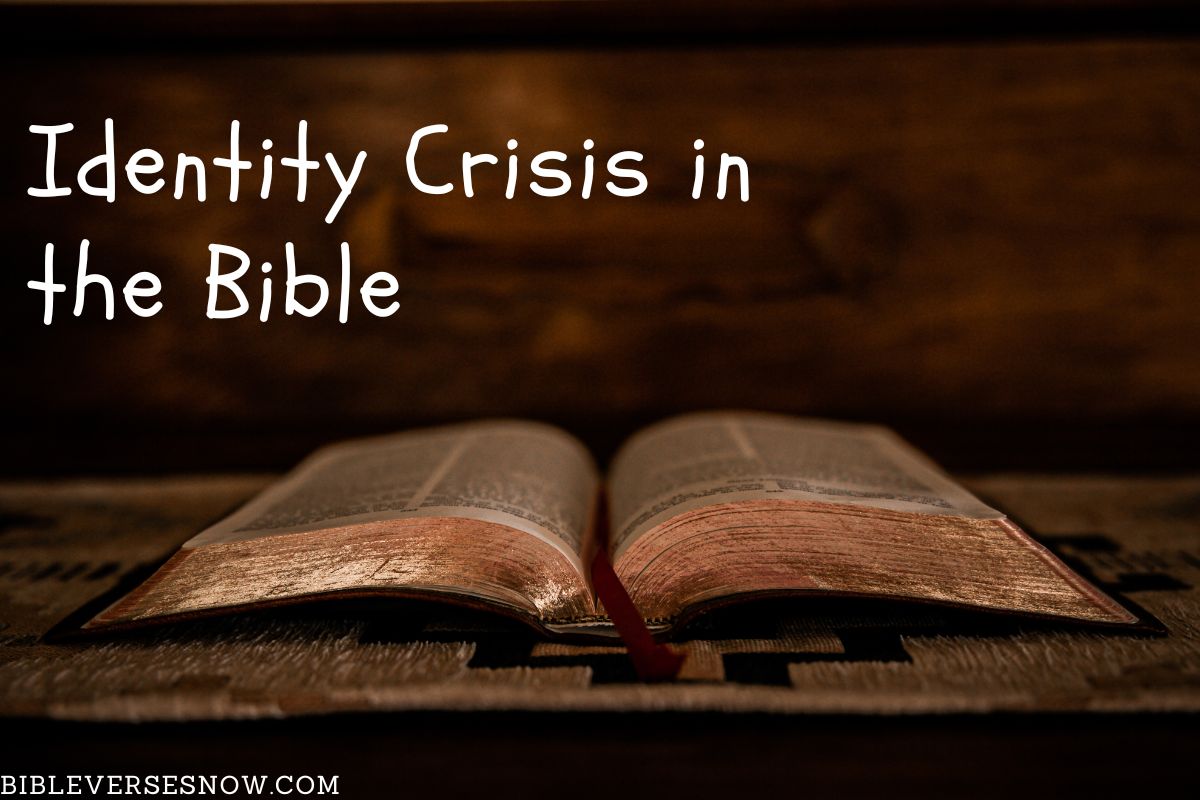Becoming a pastor is a noble and fulfilling calling that involves serving and leading a congregation with compassion and guidance. It is a role that requires a strong sense of devotion, spiritual maturity, and a deep understanding of the Scriptures. If you feel called to become a pastor and want to embark on this meaningful journey, there are several essential steps on How To Become A Pastor which you can take to prepare yourself for this significant responsibility.
Understanding the Role of a Pastor
Who is a Pastor?
A pastor is a spiritual leader who serves as a shepherd to a community of believers, providing spiritual guidance, teaching, and support. They are responsible for leading the church, overseeing its operations, and nurturing the spiritual growth of its members.
Qualities of a Good Pastor
To excel as a pastor, it is crucial to possess certain qualities that enable effective leadership and ministry. Some essential qualities include strong faith, empathy, integrity, humility, effective communication skills, and a heart for serving others.
Responsibilities of a Pastor
Pastors have diverse responsibilities that encompass preaching sermons, conducting worship services, providing pastoral care and counseling, administering sacraments, leading Bible studies, and organizing church activities. They also play a vital role in the overall spiritual and administrative aspects of the church.
9 Steps On How To Become A Pastor
1. Education and Training
Pursuing Theological Education
Acquiring a solid theological foundation is integral to becoming a pastor. Consider enrolling in a seminary or Bible college to pursue a degree program specifically designed for pastoral training. These institutions offer courses in theology, biblical studies, pastoral care, leadership, and other relevant subjects.
Choosing a Seminary or Bible College
When selecting a seminary or Bible college, it is essential to research and consider various factors such as accreditation, faculty expertise, curriculum, denominational affiliation (if applicable), and opportunities for practical experience.
Degree Programs for Pastors
There are several degree programs available to aspiring pastors, including Bachelor of Arts in Ministry, Master of Divinity (M.Div.), and Doctor of Ministry (D.Min.). These programs provide a comprehensive education that equips individuals with the necessary knowledge and skills to serve as pastors.
2. Spiritual Growth and Personal Development
Developing a Strong Relationship with God
As a pastor, it is vital to cultivate a deep and personal relationship with God. Devote time to prayer, Bible study, and meditation, allowing your faith to flourish and inform your ministry. Seek spiritual guidance from mentors, pastors, and trusted spiritual advisors.
Deepening Your Biblical Knowledge
Studying the Bible extensively is crucial for a pastor. Dive into the Scriptures, explore different interpretations, and develop a comprehensive understanding of theological concepts, doctrines, and biblical narratives. Consider attending theological conferences, workshops, and seminars to enhance your biblical knowledge.
Strengthening Leadership Skills
Pastors are also leaders, and developing leadership skills is essential. Explore resources and books on leadership principles, attend leadership development programs, and seek opportunities to lead and serve within your church or community.
3. Practical Experience and Ministry Involvement
Volunteering in Church Ministries
Gain practical experience by actively participating in various church ministries. Volunteer in areas such as worship, children’s ministry, youth ministry, outreach programs, or community service projects. This hands-on involvement will provide valuable insights and help you understand different aspects of pastoral ministry.
Gaining Practical Experience
Apart from volunteering within your church, consider seeking internships or part-time positions in established churches or ministries. This practical experience will expose you to real-life ministry situations, allowing you to apply the knowledge gained during your theological education.
Developing Pastoral Skills
Use every opportunity to develop essential pastoral skills, such as preaching, teaching, counseling, and leading worship services. Seek feedback from experienced pastors and mentors to refine your skills and gain valuable insights.
4. Mentorship and Guidance
Seeking Mentors and Spiritual Advisors
Find mentors and spiritual advisors who can guide and support you on your pastoral journey. Seek out experienced pastors who can offer valuable wisdom, provide guidance, and serve as a source of inspiration.
Learning from Experienced Pastors
Engage in intentional conversations and learning opportunities with experienced pastors. Attend conferences, workshops, and seminars where you can listen to their sermons, engage in discussions, and learn from their experiences.
Accountability and Support
Establish accountability structures and support systems to ensure personal and ministerial growth. Connect with other pastors or join pastoral networks where you can receive support, share experiences, and learn from one another.
5. Licensing and Ordination
Requirements for Licensing
Each denomination may have specific requirements for licensing pastors. Familiarize yourself with the criteria set forth by your respective denomination, which may include educational qualifications, completion of specific courses, examination processes, and endorsement by a recognized governing body.
The Ordination Process
Ordination signifies formal recognition as a pastor. The process typically involves an examination of theological knowledge, ministerial skills, and an assessment of your calling. Consult with your denomination or local church leadership to understand the steps involved in the ordination process.
Denominational Differences
Keep in mind that different denominations have distinct ordination processes and requirements. Familiarize yourself with the practices and beliefs of your chosen denomination and ensure compliance with their specific guidelines.
6. Building a Network and Community
Networking with Other Pastors and Church Leaders
Connect with other pastors and church leaders in your community and beyond. Attend ministerial associations, conferences, and local gatherings to build relationships, collaborate on projects, and gain insights from experienced leaders.
Joining Ministerial Associations and Conferences
Participate in ministerial associations and conferences that focus on pastoral leadership and development. These events provide opportunities to learn from renowned speakers, engage in discussions, and connect with like-minded individuals in the ministry.
Building Relationships in the Local Community
Establish a strong presence in your local community by engaging in community outreach programs, partnering with local organizations, and demonstrating a genuine care for the well-being of the community. Building relationships beyond the church walls will enhance your pastoral effectiveness.
7. Developing Effective Communication Skills
Preparing and Delivering Sermons
Effective communication is at the heart of pastoral ministry. Hone your sermon preparation and delivery skills. Study homiletics, learn effective storytelling techniques, and develop a style of preaching that engages and inspires your congregation.
Public Speaking and Presentation Skills
Beyond sermons, pastors are often called upon to speak at various events. Enhance your public speaking and presentation skills by seeking opportunities to speak in public, joining Toastmasters or similar organizations, and receiving constructive feedback from trusted individuals.
Active Listening and Pastoral Counseling
Develop active listening skills to provide empathetic pastoral care and counseling. Learn to create a safe and supportive environment where individuals can share their concerns and seek guidance. Consider pursuing training or courses in pastoral counseling to enhance your skills in this area.
8. Embracing Leadership and Shepherd Responsibilities
Leading the Congregation
As a pastor, you are called to lead and guide your congregation. Develop a leadership style that inspires trust, fosters unity, and empowers others to use their gifts for the betterment of the church. Continually seek personal and professional growth as a leader.
Providing Pastoral Care and Support
Shepherding the flock involves providing pastoral care and support to individuals within the congregation. Be available to listen, offer guidance, and pray with those in need. Develop a compassionate and caring approach that reflects Christ’s love.
Guiding and Mentoring Others
Part of the pastoral role is guiding and mentoring others in their spiritual journey. Provide opportunities for discipleship, mentorship, and leadership development within the church. Encourage and equip individuals to grow in their faith and take on ministry roles.
9. Balancing Personal Life and Ministry
Self-Care and Avoiding Burnout
Pastoral ministry can be demanding, so prioritize self-care to avoid burnout. Set healthy boundaries, maintain a regular schedule for rest and relaxation, engage in hobbies or activities that bring you joy, and seek support from your loved ones.
Setting Boundaries and Prioritizing Family
Establish clear boundaries between your ministry responsibilities and personal life. Prioritize your family relationships and invest time and effort into nurturing them. Balance your time and energy to ensure your family receives the attention they deserve.
Seeking Emotional and Mental Support
Being a pastor can be emotionally and mentally challenging. Seek support from trusted friends, family members, or professional counselors who can provide guidance and a listening ear when needed. Don’t hesitate to reach out for help when facing difficulties.
How to Become a Pastor for Free
While pursuing a pastoral vocation often involves financial costs, there are ways to become a pastor without a significant financial burden. Here are a few strategies:
1. Seeking Sponsorship or Scholarships
Some religious organizations or denominations offer sponsorship or scholarships to individuals who demonstrate a genuine calling to become pastors. These opportunities provide financial assistance to cover educational expenses, making it possible to pursue theological studies without incurring substantial debts.
2. Joining a Denominational Training Program
Certain denominations operate their own training programs, which may offer education and mentorship for individuals aspiring to become pastors. These programs often come with reduced or no tuition fees, allowing individuals to receive training and guidance at a minimal cost.
3. Utilizing Online Resources and Courses
The Internet offers a wealth of free or low-cost resources for theological education. Online platforms, websites, and educational institutions provide access to lectures, courses, and study materials on various aspects of theology and pastoral ministry. By utilizing these resources, aspiring pastors can enhance their knowledge and skills without financial constraints.
How to Become a Pastor Online
In the digital age, aspiring pastors can take advantage of online opportunities to pursue their calling. Here are some avenues to consider:
1. Online Theological Degrees
Several reputable institutions offer accredited online programs in theology, divinity, or ministry. These programs provide flexibility and convenience, allowing students to study at their own pace while fulfilling other commitments. Online theological degrees provide comprehensive education and equip individuals with the necessary knowledge and skills to become pastors.
2. Virtual Seminaries and Bible Colleges
Virtual seminaries and Bible colleges provide a platform for individuals to engage in theological studies and receive training for pastoral roles. These institutions offer courses, mentoring, and community engagement opportunities through virtual platforms. While attending a physical campus has its advantages, virtual alternatives provide flexibility for those who may be unable to relocate or commit to traditional, full-time study.
3. Participating in Online Ministry Programs
Online ministry programs offer a practical approach to pastoral training. Through virtual internships, mentorship programs, and interactive learning experiences, aspiring pastors can gain hands-on experience in ministry while studying remotely. These programs often involve collaborating with experienced pastors and engaging in real-world scenarios, preparing individuals for the challenges and responsibilities of pastoral leadership.
How to Become a Pastor in the UK
Becoming a pastor in the United Kingdom involves specific requirements and processes. Here is an overview:
1. Understanding the Requirements
Different denominations and religious organizations in the UK may have specific requirements for ordination as a pastor. It is essential to research and understand the prerequisites set by the denomination you wish to serve. These requirements may include theological education, practical experience, and adherence to specific doctrinal beliefs.
2. Attending a Theological College or University
In the UK, attending a theological college or university is a common pathway to becoming a pastor. These institutions offer degree programs in theology, ministry, or divinity, providing comprehensive education and training for pastoral roles. It is important to select an institution that is recognized and accredited by relevant religious authorities.
3. Meeting Denominational Requirements
Each denomination in the UK has its own process for ordination. This typically involves a period of discernment, theological training, and practical experience. Candidates may undergo interviews, examinations, and assessments to demonstrate their suitability for pastoral ministry. It is crucial to connect with the denomination and follow their guidelines to become ordained as a pastor.
How to Become a Pastor in Canada
If you aspire to become a pastor in Canada, here are the key considerations:
1. Understanding the Educational Requirements
To become a pastor in Canada, a solid educational foundation is typically required. This involves completing a bachelor’s degree in theology, ministry, or a related field. Many universities, colleges, and seminaries across the country offer programs that equip individuals with the necessary knowledge and skills for pastoral ministry.
2. Applying for Seminaries or Bible Colleges
After obtaining a bachelor’s degree, aspiring pastors in Canada often pursue further education at seminaries or bible colleges. These institutions provide specialized training in theology, pastoral care, counseling, and leadership. Candidates can select programs that align with their denominational affiliation or theological perspective.
3. Meeting Denominational and Provincial Requirements
Denominations and provinces in Canada may have specific requirements for pastoral ordination. This may include practical experience, denominational affiliation, doctrinal examinations, and interviews. It is important to research and understand the specific requirements set by your chosen denomination and province to ensure a smooth path towards becoming a pastor.
How Long Does It Take to Become a Pastor?
The timeframe to become a pastor can vary based on individual circumstances and the educational path chosen. Here are some factors to consider:
1. Educational Timeframe
Obtaining a bachelor’s degree in theology or a related field typically takes around four years of full-time study. However, the duration may vary depending on the institution and the student’s course load. Subsequently, pursuing a master’s degree in theology or divinity can take an additional two to three years. Overall, completing the necessary education can take anywhere from six to eight years.
2. Practical Experience
Gaining practical experience as a pastor-in-training is an essential part of the journey. This may involve serving as an intern or associate pastor within a congregation, participating in mentoring programs, or taking on leadership roles in church ministries. The duration of practical experience can vary, but it often spans several years to develop the necessary skills and pastoral competencies.
3. Ordination Process
The process of ordination, including meeting the requirements of a specific denomination, can also impact the timeline. Some denominations have structured ordination processes that may involve evaluations, interviews, and examinations. The duration of this process can vary, but it typically takes several months to a year to complete.
How Much Does It Cost to Become a Pastor?
The cost of becoming a pastor encompasses various aspects, including educational expenses, ordination fees, and other associated costs. Here’s an overview:
1. Educational Expenses
Pursuing a theological education involves costs such as tuition fees, textbooks, and materials. The expenses can vary depending on the institution and the program. It is important to research and consider the financial implications, including potential scholarships, grants, and loans that may be available to offset the costs.
2. Ordination Fees
Becoming ordained as a pastor often incurs certain fees, such as application fees, examination fees, and fees associated with the ordination ceremony itself. The specific amount varies among denominations and regions. It is advisable to connect with the relevant religious authorities or denominational offices to determine the expected costs.
3. Other Costs to Consider
In addition to educational and ordination expenses, aspiring pastors should consider other costs associated with their journey. These may include living expenses, accommodation, transportation, and professional development opportunities. It is important to create a budget and plan accordingly to manage these expenses effectively.
Conclusion
Becoming a pastor is a transformative journey that requires dedication, continuous learning, and a deep commitment to serving God and others. By pursuing theological education, nurturing spiritual growth, gaining practical experience, seeking mentorship, and developing essential skills, you can prepare yourself for the rewarding and fulfilling role of a pastor. Embrace the challenges and joys of pastoral ministry, and remember that it is a calling that requires ongoing personal and professional development.
FAQs
FAQ 1: How long does it take to become a pastor?
The time required to become a pastor can vary depending on individual circumstances and educational paths. It typically involves several years of theological education, practical experience, and the completion of specific requirements set by your denomination.
FAQ 2: Do I need a degree to become a pastor?
While a formal degree is not always a requirement, pursuing theological education is highly beneficial for pastoral ministry. It equips you with essential knowledge, biblical understanding, and practical skills necessary for effective leadership and shepherding.
FAQ 3: Can anyone become a pastor?
While anyone can aspire to become a pastor, it is essential to discern if you have a genuine calling and passion for pastoral ministry. Seeking guidance from mentors, evaluating your spiritual gifts, and engaging in self-reflection will help you determine if becoming a pastor aligns with your purpose.
FAQ 4: What are some challenges pastors face?
Pastors face various challenges, including balancing ministry and personal life, addressing congregational conflicts, navigating theological and ethical dilemmas, and managing the emotional demands of pastoral care. Building a strong support system and prioritizing self-care are crucial in overcoming these challenges.
FAQ 5: How can I discern if I’m called to be a pastor?
Discerning a pastoral calling involves seeking God’s guidance, evaluating your passions and gifts, seeking counsel from trusted mentors and spiritual advisors, and observing confirmation through opportunities to serve and lead. Prayer, self-reflection, and seeking wisdom from others will help you discern your calling.







